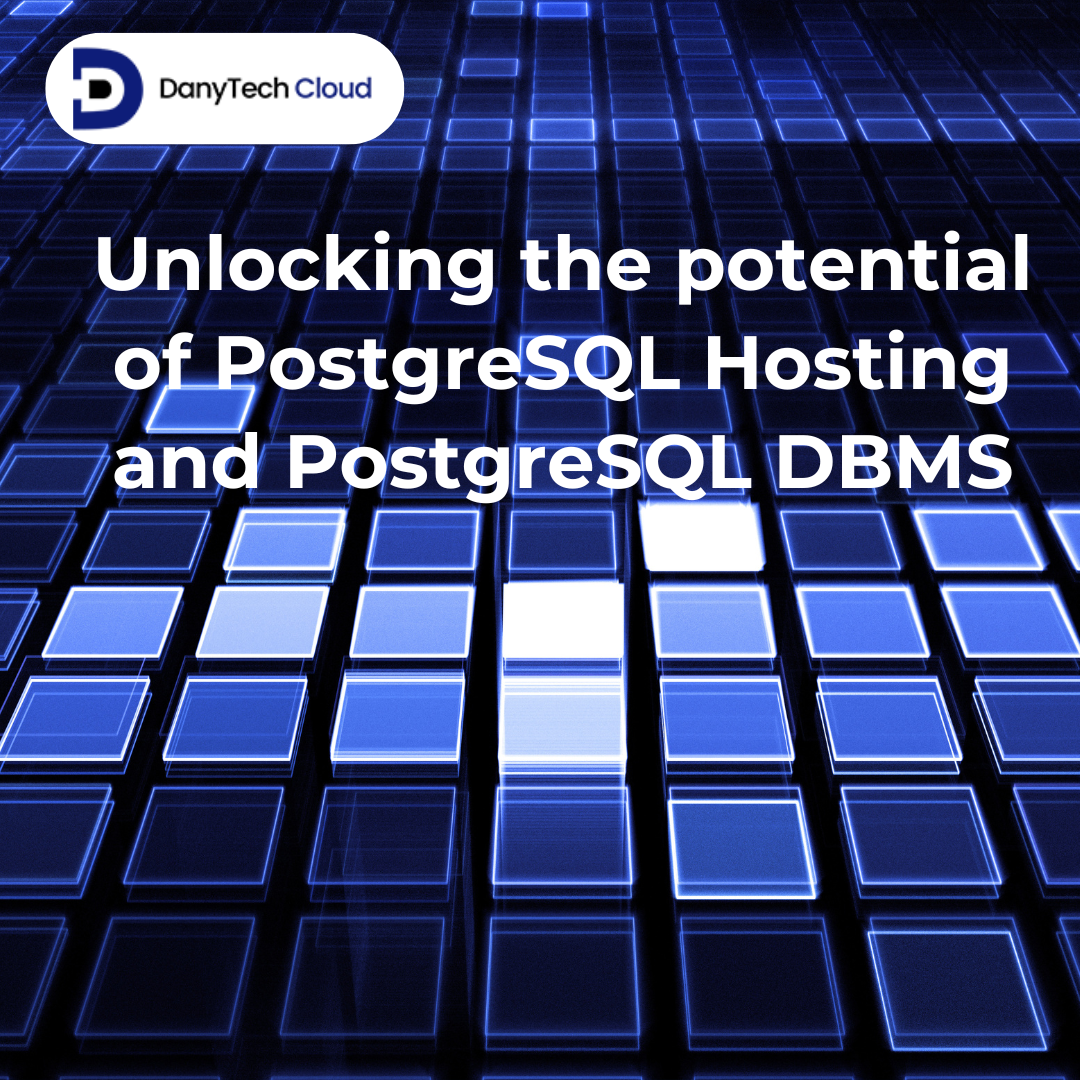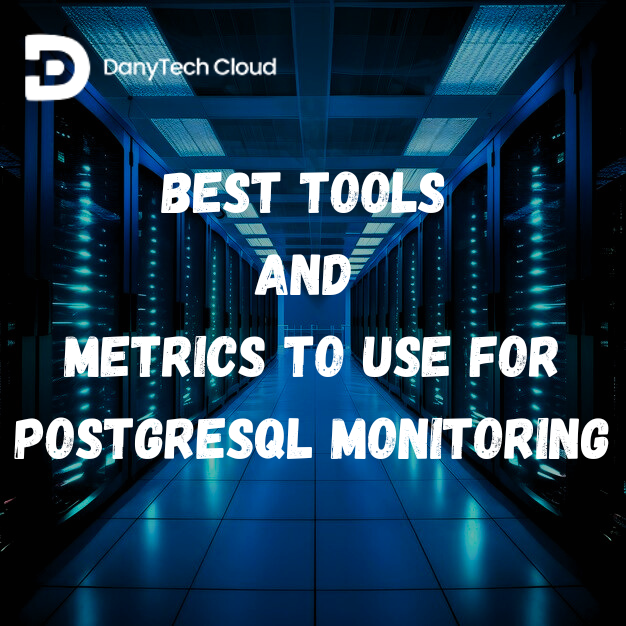In the dynamic landscape of modern business, data management plays a crucial role in driving the success of your hard work. With the exponential growth of the significant data that companies are generating, it has become necessary for businesses to ensure the implementation of robust database management systems (DBMS).
Among the plethora of options available, PostgreSQL stands out as a reliable, comprehensive, and robust open-source relational database management system. If you want to learn more about the potential of PostgreSQL hosting and DBMS, we will explore everything in detail.
So, without further ado, let’s dive into the world of PostgreSQL hosting and explore the capabilities of PostgreSQL DBMS, highlighting its benefits, features, and best practices for hosting and managing PostgreSQL database.
But first, let us understand what PostgreSQL DBMS is.
Understanding PostgreSQL Database Management System
PostgreSQL is often referred to as Postgres. It is an advanced open-source relational database management system that is known and appreciated for its reliability, scalability, and extensibility. Developed over three decades ago, PostgreSQL has now transformed into a mature and feature-rich database solution. Moreover, it is trusted and used by organizations across the globe.
One of the best features of Postgresql is that it adheres to the SQL standard and offers a wide array of advanced features. These include the following.
ACID Compliance
PostgreSQL takes it upon itself to ensure the integrity of your data. This is done through its support for Atomicity, Consistency, Isolation, and Durability
(ACID) properties. Consequently, it is suitable for all the critical applications of a business and allows for a seamless experience.
Extensibility
PostgreSQL receives support for custom extensions and procedural languages, such as PL/pgSQL, PL/Python, and PL/Perl. These allow it to extend its functionality to meet specific requirements being requested by the developers.
Data Types
Another useful feature offered by PostgreSQL is a wide range of data types. These include native support for JSON, XML, arrays, and geometric data. As a result, it effectively enables developers to handle diverse data formats in an efficient and streamlined manner.
Security
PostgreSQL database realizes how important it is to protect the data and information regarding finances, clients, products and more. For this reason, it prioritizes data security to ensure that businesses are comfortable entrusting it with the responsibility to protect their information. Consequently, it employs the functionalities of robust authentication mechanisms, SSL encryption, role-based access control (RBAC), and comprehensive auditing capabilities. This enforces the trust and reliability of companies in the security protocols being used by PostgreSQL.
Now that you have a basic understanding of how PostgreSQL DBMS functions, let’s take a closer look at its hosting.
Exploring PostgreSQL Database Hosting
Choosing the appropriate hosting environment is paramount to optimize the performance, reliability, and security of PostgreSQL databases. With numerous hosting options at hand, tailored to various business needs, organizations can ensure their databases operate seamlessly and efficiently.
Below are several hosting options that are well-suited to cater to diverse business requirements.
Self-Managed Hosting
If your organization has in-house expertise, you may opt for self-managed hosting. This will allow you to ensure continued responsibility for provisioning, configuring, and maintaining the hosting infrastructure. Keep in mind that this approach provides maximum control but also requires substantial technical proficiency and resources from the company.
Managed Hosting Providers
Managed hosting providers take pride in offering fully managed PostgreSQL database hosting solutions. They also take on the responsibility of handling infrastructure management, maintenance, and support tasks. This gives businesses enough room to focus on application development and data management. In addition, you will have ample opportunity to leverage the expertise of the provider in such cases.
Cloud Hosting Platforms
You may have heard of various cloud platforms out there. These include Amazon Web Services (AWS), Google Cloud Platform (GCP), and Microsoft Azure, which offer PostgreSQL as a managed service. As a result, you will have a reliable and competent hosting solution on your side, which has excellent and advanced features. These may be automated backups, monitoring, and high availability.
Best Practices for PostgreSQL Database Hosting
Regardless of the hosting option you choose, it is necessary to adhere to best practices. This is crucial as it optimizes the performance of PostgreSQL and allows you to maintain the integrity of your company’s data.
Here are several best practices you can follow for a smooth experience with PostgreSQL database.
Regular Backups
Feel free to implement automated backup strategies to safeguard data against accidental loss or corruption. Make sure to make the most out of features like Point-in-Time Recovery (PITR) to restore databases to specific transaction points.
Monitoring and Alerting
Another avenue you could explore would be deploying monitoring tools to track key performance metrics, identify bottlenecks, and preemptively address issues. This will allow you to configure alerts to notify administrators of critical events or anomalies.
Hardening of Security
It is imperative for you to implement robust security measures, including encryption at rest and in transit, robust authentication mechanisms, and regular security audits to mitigate the risk of data breaches and unauthorized access.
Fine-tuning Performance
It falls on you to fine-tune PostgreSQL configuration parameters, optimize queries, and utilize indexing and caching mechanisms to boost the performance and responsiveness of your database.
Increased Availability and Disaster Recovery
It is not enough to ensure the effective implementation of backup procedures and smooth processes. It is also necessary to build a contingency plan. This will include implementing a redundancy and failover mechanism to ensure high availability and resilience. In addition, you can make use of features like streaming replication and automated failover to minimize downtime in the event of hardware failures or network issues.
Conclusion
There is no denying that PostgreSQL database hosting offers organizations a robust and flexible platform for managing their data effectively. Whether self-managed or through managed hosting providers or cloud platforms, it empowers businesses to build reliable and secure database solutions to support their evolving needs.
As you adhere to best practices and leverage the advanced features of PostgreSQL database management system, you can successfully unlock the full potential of their data and drive innovation in today’s competitive landscape.




